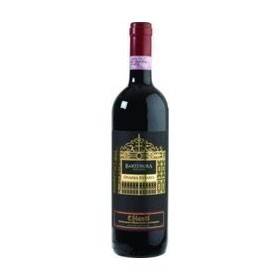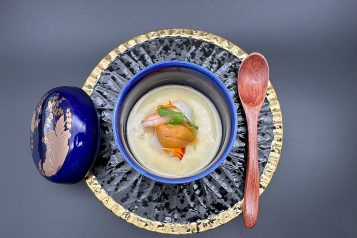I have a bit of a varied history with Kosher wines. I can vividly remember a sukkot dinner with my old roommates where we shared a lightly sparkling sweet kosher wine that was so memorable I can still remember it today as well as a time I picked up a frighteningly tannic Cabernet Sauvignon for my friend’s Passover seder that could have stripped rust off a pipe. In full disclosure I am a Presbyterian but living most of my 20s in the Upper West Side of Manhattan I have an affinity for Jewish culture, food and yes, wine.
I have always had a special place in my heart for Manischewitz, the inky blue sweet libation made from Concord grapes. Looking at their website recently I am taken aback by their varieties of saccharine drinks that include Cream Peach (can you call this a wine?) and Extra Heavy Malaga which they say is “specially sweetened fruity wine with a generous mouth feel.” At a friends’ latke party I even helped create specialty cocktails using Manischewitz as a base. Sadly this very popular wine does little justice to the history of kosher wines, many which can be quite elegant.
Kosher wines have a set of regulations to be certified as such, many of those regulations having little to do with the final product. First of all, only Sabbath-observant Jews are allowed to be in contact with the winemaking process from the harvest to bottling to even wine service. None of the ingredients that make up wine are non-kosher but care needs to be taken that no fining agents such as casein, isinglass or gelatin be used as well. For your vegan friend who wants to make sure that their wine has not touched any animal products kosher wines are always a great pick! Wines “kosher for Passover” must not have touched bread, grain or dough. With many international winemakers starting to use classical techniques and a broad kosher market kosher wines are becoming a great option even for who are non-observant.
One of the first examples that detractors of kosher wines will use is that they are often “boiled” which is a step of the meshuval process. Today many wineries that produce meshuval wine use a flash pasteurization process, which has little effect on the product. It does effect ageing potential of the wines but most causal wine drinkers do not see any difference in the taste. Meshuval wines a popular category of kosher wines as a non-kosher server can serve them and still retain their kosher status. Many kosher caterers will use these wines and since I am not Jewish I serve them at my kosher tastings.
For those who are looking to try some great kosher wines here are some options from all over the world!
For those who like a light, crisp wine
Tishbi Chenin Blanc, 2009, Shomron, Israel
Meshuval: Yes
Cooled by the breezes of the Mediterranean sea Chenin Blanc thrives in this region that has been producing high quality wine since 1882. Bright and refreshing notes of pear and lechee lead to a finish that has just a perfect touch of sweetness. that makes this wine perfect for summer salads, fish and light chicken dishes. I would also pair this wine with a spicy thai meal or goat cheese.
For those who love a good Bordeaux
Barons de Rothschild Edmond Benjamin Haut-Medoc, 2004, Bordeaux, France
Meshuval: No
This wine made from Cabernet Sauvignon and Merlot grapes stands up to other selections from this storied wine region. A core of dark berries and complex spice notes lead to a finish that is long and has a touch of mint. Tannins were bold but ripe and well integrated. A great complement to a steak or brisket.
For those looking for a perfect pizza wine
Bartenura Chianti, 2009, Tuscany, Italy
Meshuval: Yes
Sangiovese sings in this bright and highly quaffable wine that is full of ripe red cherries and spice. Tannins are soft and the acidity keeps this wine quite food friendly. This wine is a perfect complement to any Italian dish but will sing with a pizza, even with a bit of spice.
For more information and kosher selections:
http://www.kosherwine.com/Default























